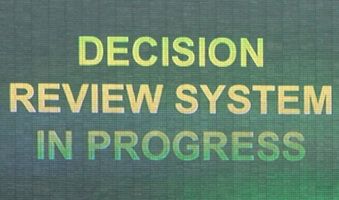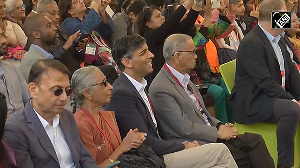The International Cricket Council (ICC) has taken the first step towards controlling the controversial Decision Review System (DRS) in the third Ashes Test at Old Trafford with trial of an alternative system to reduce the third umpire's reliance on the host broadcaster.
According to the Guardian, the trial was planned even before England batsman Jonathan Trott was given out LBW in the first Test at Trent Bridge because of an error by the Hot Spot cameraman.
 Hoping that the new DRS could even help to persuade India to abandon their suspicion of technology, ICC chief executive Dave Richardson said that there will now be a number of televisions in the third umpire's room with Hawk-Eye, replays and Hot Spot directly available to him to look at independently to what is on TV.
Hoping that the new DRS could even help to persuade India to abandon their suspicion of technology, ICC chief executive Dave Richardson said that there will now be a number of televisions in the third umpire's room with Hawk-Eye, replays and Hot Spot directly available to him to look at independently to what is on TV.
According to Richardson, the idea is to give the third umpire access to information, which he needs much quickly, and remove his reliance on the television producer to do it, adding that the new system can remove the suspicion that the current DRS may be open to manipulation by the host television company
Richardson further said that if the company is biased then they could remove a particular replay from the screen if they do not want the third umpire to see that, adding that they have trialled the new system to remove the fear and absolve suspicions of the ICC liaising directly with the technology suppliers.
However, Richardson stressed that there will be no change to the existing system 'mid-series' or even in the short term, adding that although the system is still in the initial stages, it can take cricket to new heights when it becomes available.
Meanwhile, the IC chief agreed that the dominance of umpires from England and Australia on the ICC's 12-man elite panel is a major concern, especially in consecutive Ashes series, adding that New Zealander Billy Bowden is the most likely replacement if it proves impossible to shuffle the four available officials for 10 Tests in six months.







 © 2025
© 2025